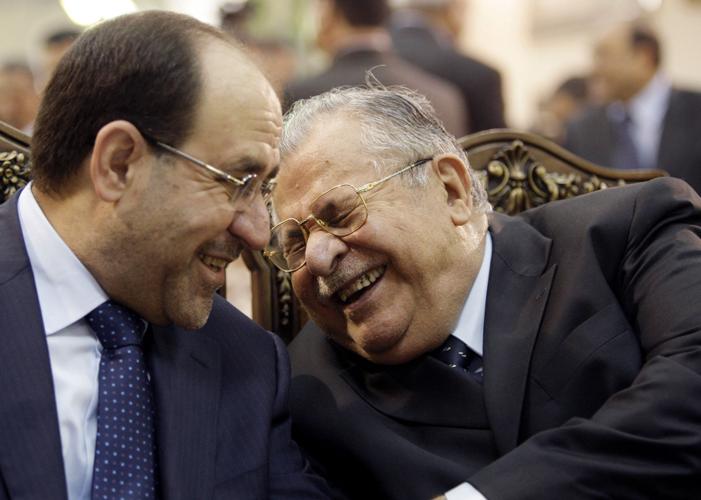iraq president after saddam: Jalal Talabani
Really, After the fall of Saddam Hussein, Iraq entered a new era of governance. The role of the President in this transitional phase has been crucial in shaping the country's political landscape.

Credit: www.cbsnews.com iraq president after saddam
The President's Role in Post-Saddam Iraq
As Iraq navigated through the aftermath of Saddam Hussein's regime, the position of the President emerged as a symbol of unity and stability. The President's responsibilities encompassed overseeing the country's transition to democracy, promoting national reconciliation, and representing Iraq on the international stage.
Key Functions Of The President
Let's delve into the key functions of the President in post-Saddam Iraq:
Function | Description |
|---|---|
Head of State | The President serves as the ceremonial head of state, representing Iraq domestically and internationally. |
Chief Executive | The President plays a key role in the executive branch, overseeing the implementation of government policies. |
Commander-in-Chief | As the Commander-in-Chief of the armed forces, the President is responsible for Iraq's national security. |
National Unity | The President works towards fostering national unity and reconciliation among Iraq's diverse population. |
The Challenges Faced by the President
Amidst the transition period, the President of Iraq encountered numerous challenges:
Political Instability
Ethnic and Sectarian Divisions
Security Threats
Economic Struggles
Leadership In Times Of Crisis
The President's leadership during times of crisis was pivotal in maintaining stability and steering Iraq towards a path of progress and development. By working closely with other branches of government and international partners, the President played a crucial role in addressing the challenges faced by the nation.

Credit: www.bendbulletin.com iraq president after saddam
The Legacy of Iraq's President
The tenure of the President in post-Saddam Iraq left a lasting legacy on the country's political landscape. The President's efforts in promoting democracy, unity, and prosperity have laid the foundation for a brighter future for Iraq.
Key Achievements
Some of the key achievements of Iraq's President include:
Promoting National Reconciliation
Enhancing Security and Stability
Boosting Economic Growth
Strengthening International Relations
The Future Ahead
As Iraq continues its journey towards stability and prosperity, the role of the President remains vital in shaping the nation's future. By upholding the values of democracy, inclusivity, and progress, the President will continue to guide Iraq towards a brighter tomorrow.
In conclusion, the transition of power in post-Saddam Iraq marked a significant chapter in the country's history. Through the leadership and vision of the President, Iraq has embarked on a path of rebuilding and progress, setting the stage for a promising future.
iraq president after saddamFrequently Asked Questions
Who Was The First President Of Iraq After Saddam Hussein?
The first president of Iraq after Saddam Hussein was Jalal TalabaniJalal Talabani, who served from 2005 to 2014.
What Changes Occurred In Iraq's Government After Saddam Hussein?
After Saddam Hussein, Iraq transitioned to a democratic government, holding elections and establishing a new constitution.
How Did The Presidency Of Saddam Hussein Impact Iraq?
Saddam Hussein's presidency was marked by authoritarian rule, human rights abuses, and conflicts, significantly impacting Iraq's stability and development.
What Were The Key Challenges Faced By The Post-saddam Hussein Presidency?
The post-Saddam Hussein presidency faced challenges such as security concerns, political instability, and rebuilding the country's infrastructure.
Conclusion
Last of all we can say that, the Post Saddam HusseinPost Saddam Hussein presidency faced massive challenges in every branch of Politics of the country. Thanks for reading.




.webp)

